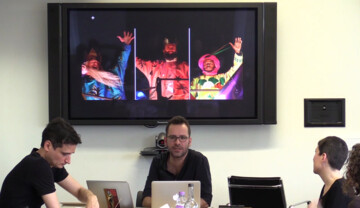A critique of autonomy
In the wake of the crisis – not only of the financial processes but also of the political systems of representation and welfare – the question of constituency interpellates the relation between society and institutions, between social life and governance. For this reason, the frame of the question changes if compared to the debates around publics and audiences in the late 20th century, and goes beyond the debate about how to transform cultural institutions. At stake today is the possibility of reinventing public institutions, but also the risk of them disappearing.
In addition to the corpse of T. H. Marshall’s concept of citizenship, facing the crisis of social rights and the welfare state, fighting against the dismantlement of civil and political guarantees in the aftermath of the great recession that started in 2008, the need today is to think about and reinvent the concept of constituency not only in cultural institutions, but also in the social life of the crisis of Europe, in a space made up of conflicts, ambivalences and possibilities.
How can we rethink and use today the debates about constituencies, audiences, publics and → commons that have animated the critique of cultural institutions and museums in the last few decades, to move through the general crisis of citizenship that European society is now facing? How can we imagine these debates beyond the field of cultural production, in the crisis but also in the possibility of reinventing the state? How can we carry out an institutional critique in the everyday experience of a healthcare facility heavily affected by austerity measures? On the routes drawn by → migrants and refugees throughout a fragmented Europe? In the schools and the universities run by students and workers in the → south of the continent?
This is a task that calls on us to behold the crisis as an opportunity for change, and the recovery from this crisis as offering a possibility “of transformation for the better”, as Jo Brewis put it. It is a matter of → translating [→ translating] the formats and concepts of institutional critique in the spaces of policymaking: in the rooms and the protocols of public workers, in the quotidian definition of those procedures that define how institutions guarantee the universal logic to health and care, the provision of housing rights, and universal access to education.
This is the problem of constituencies today: to break apart any autonomy of the critical institutional debate from the widespread and dramatic contradictions of contemporary social life. And to affirm a radical critique of institutions as a practice of transformation and regulation in relation to the state, the welfare system, and the mechanism of public administration. This is not yet the problem of the commons as something to be produced anew, in the nowhere of utopia, but the question of how to imagine a transition beyond the crisis and towards an elsewhere, a continuous displacement from the real, an otherness of space built through one’s own living. A political imagination that is immersed in the real and escapes determinism.
Elsewhere as a collective production, not as a land for utopian “discovering” (that quite often ends up being a practice of conquering), but as a practice to transform what exists: the infrastructure of the social democratic state against and beyond the ruins of neoliberal dispossession. It is about citizens becoming makers and not only users (or subjects) of public policies and institutions.
The genealogy and debates of institutional critique in the field of culture have been of incredible importance for the possibility of settling a series of radical categories in the organisation of the institutional machines of cultural production – the question is how this critique can become a tool to break into a series of other institutional machines, into other sites of the state. If it is true that representational politics have been disrupted by the disarticulation of any social “integer” and of any fixed belonging, this collapse has been analysed and operated widely in the space of institutional critique. Critical institutions have been the ground to constitute a space of expressive “citizenship”, rather than a representational one.
However, this practice of expression cannot be a solipsism echoing in the empty rooms of an institution. Expression, as the Zapatista saying goes, needs to break the mirror. It thus needs to renounce any fantasy of autonomous expression that ends up re-presenting the self, and start dealing with the sharp, broken pieces of a “post- representational scenario of politics.” Expression, in other words, can be a space from where to relate among experiences a raz de suelo (in contact with the soil), constituting a space of continuities among differences, and so produce bridges, encounters, and → alliances, rather than affirming a signifier capable of producing a representation. If not immersed in this continuous experience of everyday life, constituency becomes an autonomous we, → ore, as Lia Colombino pointed out. A space of self-reproduction that does not engage with the ambivalences and contradictions of the broken mirror. An institutional machine that reproduces itself without intersecting with society.
According to Franco Rotelli, the former director of a radical institution of mental healthcare in Trieste, the institution cannot pose its own reproduction as the point of reference of its own practice. On the contrary, the priority of a critical institution is to renounce to its own autonomy and support the autonomy of the constituency. In his own words (stolen from Bertolt Brecht, apparently), the institution should not be scared of producing nothing more than “benches out of snow”, to let a citizen sit down and rest in the winter of her own life. When the spring will come, she will be able to stand again and participate in the life of society. No matter if the bench will melt, no matter if the institution will be left with its own hands empty. Left alone with its melting benches, the institution will once again have to start inventing.


